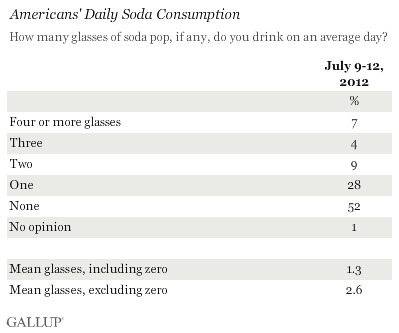In striking down Mayor Michael Bloomberg's ban on the sale of large sugary drinks, New York Supreme Court Justice Milton Tingling declared it "arbitrary and capricious," stating that it didn't apply fairly to all high-sugar beverages and all types of establishments. The American Beverage Association, which brought the lawsuit against the ban, has called it "unreasonable, unsound, and incongruous."
Bloomberg disagreed with the court and New York City is seeking to appeal the ruling. The mayor and the city Board of Health feel the ban would go a long way toward reducing obesity.
The crux of the matter is the question of what the proper role is for the government in addressing obesity -- and its various causes.
Soda, which is the focal point of Bloomberg's ban, is a tough place to start. Nearly half of Americans report that they drink soda daily -- meaning it is popular and has significant industry support and money behind it. But, studies have shown that the consumption of sugar-sweetened beverages can contribute to an array of health problems including obesity, diabetes, and heart disease. And the size of beverage containers has grown over the years -- going from 20 ounces, which contains about 227 calories, to as large as 64 ounces, which contains more than 700 calories (CDC).
Meanwhile, more than one in four Americans are obese.

